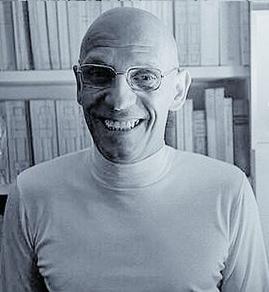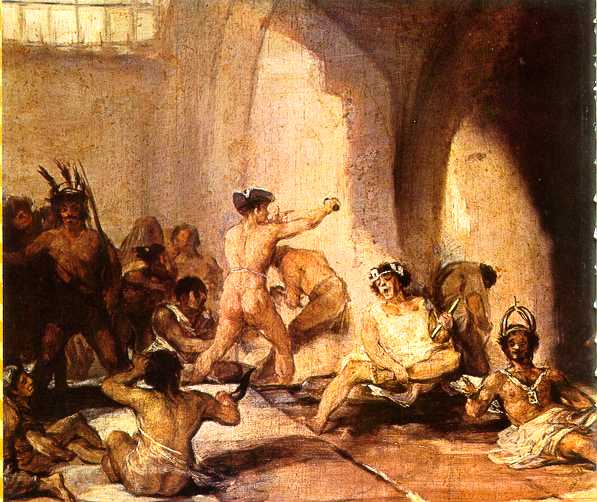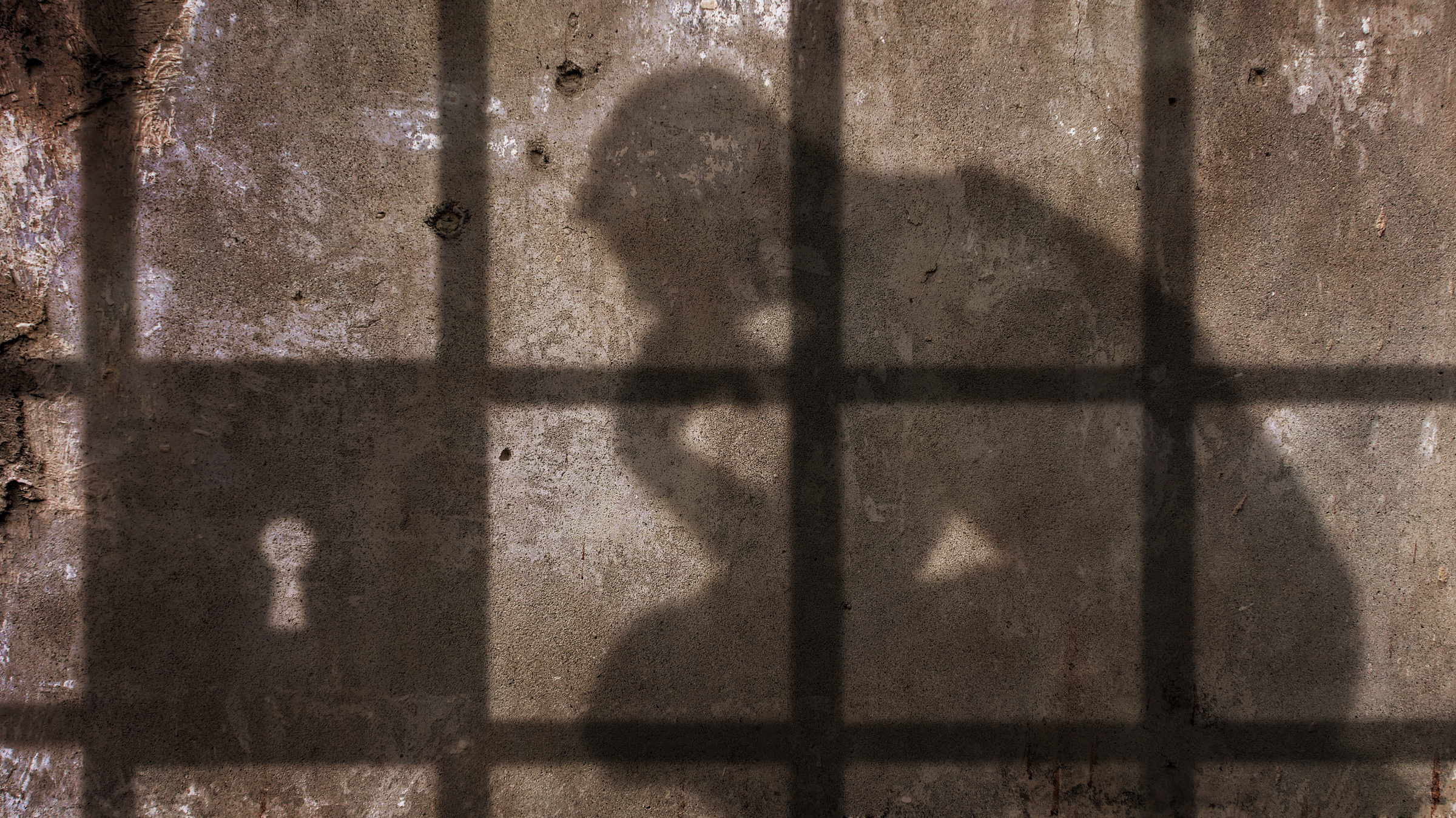Foucault’s work was often historical in terms of how he approached his topics. His books include histories of madness, of clinical medicine and of the human sciences, of the history of the prison and the punitive society more generally. Then there is his last great project, the unfinished The History of Sexuality, which he was working on at the time of his death.
Thinking about the question of power with Foucault
Professor of Political Theory and Geography
- Foucault says that we’re still thinking about power as being centralised in society.
- Power can be understood as power relations: an exchange that goes on within society that is dispersed throughout its institutions.
- In `Discipline and Punish', Foucault tries to understand how we moved from a spectacular display of sovereign power, to the regulation of time and space in prisons.
Foucault’s work
Michel Foucault was born in 1926 in Poitiers. After the Second World War, he moved to Paris to study philosophy and psychology. When he qualified to teach, his initial posts were to teach psychology to philosophy students. He spent a few years outside of France, teaching literature and running cultural programmes in Uppsala, Warsaw and Hamburg, and then held posts in France and Tunisia, a visiting post in Brazil and had many return visits to North America, particularly to California, where he taught philosophy or the history of philosophy.

Michel Foucault, 1984. Wikimedia Commons. Public Domain.
Foucault engages with the question of power throughout his work, although it’s only really explicitly theorised in the 1970s and 1980s. Foucault is interested in rethinking the way that power can be understood, but also in analysing how power actually operates within contemporary societies.
Challenging our idea of power
Foucault challenges the way that we have traditionally understood power within political theory. He has a great line where he says that, in political thought and analysis, we have still not cut off the head of the king. For a French audience, of course, this refers to the way that the French king was guillotined. But Foucault says that we’re still thinking about power as if the king is still in that place; that we’re still thinking about power being centralised in society. We think about it flowing in one direction from the top down over people. We tend to think of power as repressive.
Foucault says we need to think about power in a different way. It’s not that power doesn’t work in those ways, but that power doesn’t only work in those ways. Power, Foucault says, can be understood as power relations: an exchange that goes on within society that flows in many directions which are not centralised but are dispersed throughout society and its institutions. Power is also productive rather than simply repressive. A lot of Foucault’s later work is exploring different ways in which power can shape individuals through their own choices, through their own way of working, rather than simply being something that is dictated to them by institutions or figures in power over them.
More than a philosopher
Foucault is an interesting figure, who sits at the intersection of several disciplines. He was trained in philosophy and psychology, but most of the work that he writes is history. So, how does Foucault situate his relation to that? There’s a good line that Foucault gives where he says, ‘The books that I write are not philosophy in the straightforward sense, nor are they histories in the conventional sense, but rather, they’re philosophical problems put to work in a historical field of problems or historical field of inquiry.’
Foucault is interested in the questions of what is power? Who has power? What is subjectivity? What is truth? What is knowledge? He tends to work these through by examining them in historical settings, by examining historical examples. Rather than writing an ethics in a traditional sense that a philosopher might write an ethics, Foucault is interested in exploring how ethical stipulations, ethical diktats, have been used in different times in different places. He is interested in trying to derive an understanding of those questions from that historical work.
So, Foucault’s work doesn’t really satisfy traditional philosophers, and traditional historians often find fault with what he’s doing, but he’s doing something interesting at the intersection of these different disciplines.
The birth of the clinic
It’s interesting that Foucault works on medicine. His father was a surgeon and medical professor, so there’s a potential biographical link there about why this was a topic he was interested in. He calls his work on medicine ‘the outtakes’ of his work on the history of madness&rsquo. In working on History of Madness, his first major book, he was led to examine a range of medical texts.
Foucault is interested in what he calls the birth of the clinic – and by ‘the clinic’, he means both clinical medicine, i.e. the practice and the knowledge of medicine, and the clinical hospital. He’s interested in how, particularly in the late 18th, early 19th century, there’s a shift in how medicine is understood and practised through the organisation of space within a hospital, through the organisation of knowledge about diseases and the ways that those can be treated.

The Madhouse, between 1812 and 1819. Francisco Goya.
At the beginning of Birth of the Clinic, Foucault identifies a discontinuity between two different ways of thinking about medicine and then posits that as an initial opening way of thinking. He asks himself how this shift occurred and traces the small incremental steps that led from one way of practising medicine to another way of thinking about it.
Discipline and Punish
Discipline and Punish is probably the most read and the most cited of Foucault’s books. It’s a book that begins with two startling images. The first is the image of the torture and execution of Damiens, somebody who had tried to kill the French king. It goes into quite graphic detail about what they did to this man whilst he was tortured in a public display and then executed.
Then, Foucault shifts to a house of young prisoners, about eighty years later, who have their time and space very carefully controlled. He says that on the first drumbeat, they need to get out of bed. On the second drumbeat, they need to be ready at the end of the bed, with the bed made. It’s a very clear compartmentalisation of their time and organisation of the space within this institution.
Foucault asks himself how did we get from one to the other? How did we move from this spectacular display of sovereign power on the body of this condemned man, to this organisation and this regulation of time and space in the prison? He goes into a lot of detail in trying to understand these questions, and it’s really the work where Foucault most explicitly engages with the question of power.
Disciplinary power
The book was published in 1975. In it, he challenges the idea that we should simply think about power in terms of sovereign power; centralised power; the domination of a king, of an emperor, of a president, of a political class. He thinks about how power is dispersed throughout society, whether it’s in a prison, a factory, a school, a hospital or in some other kind of institution.
Foucault calls this notion of power ‘discipline’ and he suggests disciplinary power works by the control of space, by the control of time, by surveillance, by the smallest infraction being punished. This way of creating what he calls “docile bodies”, he says, is a different way of understanding power that is actually much more helpful for understanding contemporary societies than the sovereign model of power.
The Prison Information Group
Foucault is certainly interested in the question of freedom and the question of how we might be able to resist the use of power over us. He talks about the way that if you look at where power is operating, that is the point where power needs to operate. That is the place where power needs to direct its forces, therefore it’s the place where resistance is possible.

Photo by zapomicron.
We can understand Foucault’s work in Discipline and Punish in terms of the political struggles that Foucault was involved with in the first part of the 1970s. With other figures, Foucault founded the Prison Information Group, which was about the condition, largely in French prisons, of trying to understand what was going on behind the walls of those closed institutions. They used this by talking to prisoners and their families and to people who had worked in prisons to try to expose what was happening.
They said that this was one of the black boxes of our society – we just don’t know what goes on within these institutions. So, they circulated questionnaires, they did interviews. They tried to get people to give testimony about their experiences and to try to use this to put pressure on the French State to be more open about what was happening in those prisons, but also potentially to open up the possibility of reform.
The power over life
Foucault proposes the notion of discipline as an alternative to sovereign power, but he also talks about different forms of power, particularly the notion of governmentality, which is really to understand how governments operate, what governments do, how governments decide to regulate and organise the lives of their population.
He introduces a notion of “biopower”, the power over life. Foucault uses the idea of biopower to talk about the politics of life, the life of the population. He’s interested in things such as the census in terms of birth rates, death rates, soil fertility. How can you feed a population? How can you keep them safe from infectious diseases? How can you prevent natural disasters from devastating the population?
Foucault’s work on biopolitics has been influential and important in a range of fields, and perhaps, particularly, in the present moment of the pandemic. People are very interested in these questions of population health vaccination programmes and what you might need to do to keep a healthy society and prevent people from being subject to harm. So, there’s a lot of work that Foucault does that has been used and employed by people in very contemporary issues, whether it’s around health, politics, policing, the question of prison reform and so on.
The best place to start
The best place to start with Foucault’s work is probably Discipline and Punish. It’s the book that I use to introduce my students to Foucault – and they’re often surprised by it. They have a sense that Foucault is going to be an intimidating, conceptually difficult author. They’re immediately struck by the power of his writing, by the use of evocative examples to get into issues, and by the historical detail that the book gives to try to open up these questions. Rather than it being a work explicitly of theory, the theory tends to come through in the discussion of the examples of these historical settings or the problems that Foucault is engaged with.
Although power is probably the concept associated with Foucault, the one that is most commonly used to think about his work is his historical approach to questions. That is perhaps the most important part of what his work can offer us: to look at a contemporary issue, a contemporary way of thinking, a contemporary way of doing things and to say, how did we get here? What were the decisions that were made, often in a quite distant, historical past, that led us to the particular moment that we’re now in?
Discover more about
Foucault and power
Elden, S. (2022). The Archeology of Foucault. Polity.
Elden, S. (2021). The Early Foucault. Polity.
Elden, S. (2017). Foucault: The Birth of Power. Polity.
Elden, S. (2016). Foucault: Last decade. Polity.
Elden, S., & Crampton, J. W. (Eds.). (2007). Space, Knowledge and Power: Foucault and Geography. Routledge.
Foucault, M. (1976). The History of Sexuality. Penguin.
Foucault, M. (1961). History of Madness. Penguin.
Foucault, M. (1963). The Birth of the Clinic. Taylor Francis.
Foucault, M. (1979). Discipline and Punish. Blackwell's.
Centre Michel Foucault, Caphés (UAR 3610) and Bibliothèque nationale de France (2025). Foucault: The Inventory of the Library of Michel Foucault and Daniel Defert.